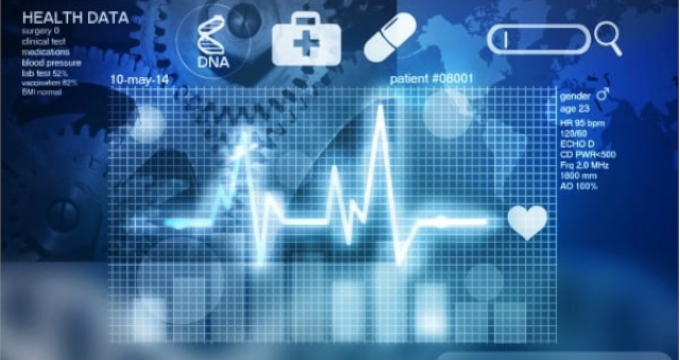Precision medicine is a relatively new term. Coined in 2016, the term refers to delivering “the right treatment, at the right time, to the right person”. In this article, we will look at how mobile app development contributes to the adoption of precision medicine practices.
How Precision Medicine Works
Precision medicine means exactly what it implies – it eliminates the guesswork and helps to choose the procedures, medications, and dosages suitable for treating a particular person. While traditional medicine takes a generalized approach, precision medicine uses individual metrics to deliver personalized treatment.
The rise of precision medicine is driven by technological advancements in genomics and genetic research and macrobiotics, but, most importantly, by the increasing use of big data. Precision medicine practices are data-centric: they focus on collecting all types of data related to patients, their medical history, genetic data, medical tests, lifestyle, habits, and behavior patterns.
On top of that, precision medicine takes into account the environmental factors: the climate, pollution, and radiation levels that patients are subjected to. The analysis of this data creates real-world evidence (RWE), which helps to choose the right medications and procedures.
How Mobile Healthcare Improves Precision Medicine Practices
Mobile apps are now an integral part of our daily lives. Apart from other consumer domains, they cover areas like wellness, lifestyle, and healthcare. Currently, mHealth apps are used for collecting data on chronic disease symptoms and users’ reactions to treatment. The integration of smartphones and wearables enables doctors to track patients’ vital metrics and broaden the range of data used for medical purposes.
Combined with genomics and EHR information and powered by AI analytics, mHealth data plays a significant role in improving precision medicine. Mobile applications interact with patients and collect data on their physical and emotional state, diet, exercise, daily routines, and exposure to negative environmental practices. They track patients’ heart rate, sleep quality, blood pressure, and their reaction to different drugs and treatment methods.
The role of these data in advancing PM practices cannot be overlooked. In the US, the Obama Administration and the National Institute of Health have been emphasizing the significance of precision medicine since 2016, because “large studies on health and disease typically collect health and lifestyle data on participant volunteers from medical records and extensive phone or paper surveys.” NIH also stated that “these devices could provide the ability to track health behaviors and environmental exposures much more frequently with minimal burden on participants.”
On top of that, the market for precision medicine is continuously growing at a CAGR of 11, 5 %. In 2020, it has already exceeded $52 billion.
Examples of Mobile Apps for Precision Medicine
Let’s now take a closer look at some of the existing apps for precision medicine. These apps are easily integrated into patients’ daily routines, and provide vivid examples of the PM practices in action.
Medisafe
A simple app for pill management, Medisafe helps to increase the efficiency of prescribed treatment. The app ensures adherence to medical prescriptions by constantly reminding users to take their meds. The app’s creators claim that it helps to increase adherence rates by 72%.
Dexcom Continuous Glucose Monitor
This app also improves adherence rates, but in a different way. It uses a wearable sensor to alert patients with diabetes about their changing glucose levels and prompts them to take timely action. Even when patients can’t help themselves, their family members are alerted as well, so that they can offer assistance.
Kardia
This is an app for managing heart disease and works in a combination with wearable EKG devices. Kardia enables patients to easily record EKG and immediately send it to their doctors for evaluation.
Cara
Cara is an app for patients living with Irritable Bowel Syndrome, Inflammatory Bowel Disease, food intolerances, and reflux. The app helps patients track their diet, daily activity, medication, and symptoms. It also helps select personally tailored probiotics to help improve patients’ conditions.
RevUp
RevUp is an app that provides a range of fee-based medical services. Chronic conditions management, transitional care management, behavioral health integration, annual wellness visits, and even whole-person care targeting a person’s physical, mental health, and socioeconomic conditions fall under the scope of this app. The platform features personal coaches and assistants available for individual consultations.
In a nutshell, mobile solutions for precision medicine help doctors and patients in a number of ways:
– Prescribing more effective medications
– Reducing side effects
– Focusing on disease prevention rather than treatment
– Helping curb the progression of diseases
– Customizing the treatment and prevention strategies to suit the needs of a particular patient
The recent advancements in treating rare diseases and several kinds of cancers are also taking place largely due to the adoption of precision medicine.
Final Thoughts
The proliferation of mobile apps for precision medicine is one of the indications of a digital healthcare transformation that is taking place in recent years. Despite the increasing number of mHealth apps for different purposes and the widening range of wearable medical devices for consumer use, the mHealth market is open to new entrants.
However, clinical expertise alone is not enough for successful mHealth app development. Ensuring regulatory compliance, as well as partnering with a reliable software development company will contribute to your success.
Interested in building solutions for precision medicine? Contact us now for a free consultation!


